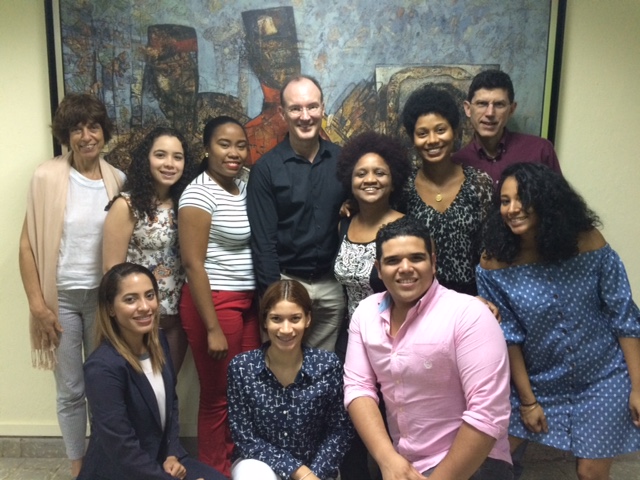
By Samuel Martínez
Haiti and the Dominican Republic share the Caribbean island of Hispaniola but are divided by a history of mutual conflict. It is often heard that the two countries have been adversaries since 1844, when the Dominicans won their independence from Haiti rather than a European colonizer (Haiti having brought both sides of the island under unified rule in 1822). Research soon to be published by two UConn professors, Samuel Martínez (Anthropology and El Instituto) and Thomas Craemer (Public Policy), confirms this common wisdom in some ways, while unsettling it in others. Specifically, they find evidence that the news media of the Dominican Republic regularly expresses anti-Haitian bias but does so in ways that sit uneasily with standard narratives about Haitian-Dominican relations. Martínez and Craemer were surprised to find that media stereotypes about Haiti and Haitian immigrants coincide strongly with globally prevalent anti-immigrant and anti-Black content but contain much less content that indexes the Dominican Republic’s past or present hostility with Haiti. The researchers first built a codebook containing more than 180 assertions about Haiti and Haitians found in three of the country’s leading daily newspapers. They then recruited teams of Spanish-speaking coders at UConn and in the city of Santo Domingo, to categorize each Haiti-related item in a large sample of news stories found with the search term “Haiti” in the online archives of three leading Dominican daily newspapers, for the years 2013, 2014 and 2015. During those years, a virtual storm of Haiti-related media coverage followed a controversial Dominican high court ruling, which effectively stripped citizenship from tens of thousands of Haitian-descendant Dominicans. In a paper to be published in the journal, Latin American and Caribbean Ethnic Studies, Martínez and Craemer warn that their findings apply only to the news and opinion page content of these leading dailies, and do not speak to questions relating to Dominicans’ feelings about Haitians, Blacks or immigrants outside of this journalistic context. Looking for both stereotype-confirming and counter-stereotypical assertions, Martínez and Craemer’s study team found surprisingly that neutral or counter-stereotypical ideas about Haiti-Dominican relations predominated numerically over “Haiti-phobic” nationalist story lines that position Haitian immigrants as alien “reconquerors” of Dominican territory. The most prevalent negative stereotypes and story lines instead fell within categories that Martínez and Craemer classify as examples of global anti-Blackness and anti-immigrant prejudice. Dominican reporting most strongly equates Haitians with criminals and Haiti with violence, a global anti-Black and anti-immigrant trope. Anti-Black prejudice is also conveyed tacitly through reporting that prefers to cite what non-Haitians say about Haiti/ans over what Haitians and Haitian descendants say. Also abundant were common anti-immigrant story lines relating to Haitian immigrants’ fraudulent use of Dominican social security and health care resources. In sum, the most respected Dominican news outlets write about Haiti and Haitians with disrespect but convey that in forms that sooner resemble racist and anti-immigrant discourse in other nations, rather than through island-specific nationalist fears about eroding sovereignty. For Martínez and Craemer, a highlight of the research experience was assembling and working with their team of Dominican coders. These advanced undergraduates and recent graduates in social communication from several Dominican universities brought important insights to the study on the basis of their native linguistic and cultural fluency. Hoping that their research is the beginning of a conversation about media bias, rather than the last word about it, both the study codebook and the universe of articles from which the study sample was drawn are accessible among the research documents at Professor Martínez’ UConn faculty Webpage. The possibilities for future research are abundant.